How to Stay Secure on Travels? 2023 Travel Safety Tips Everyone Should Know
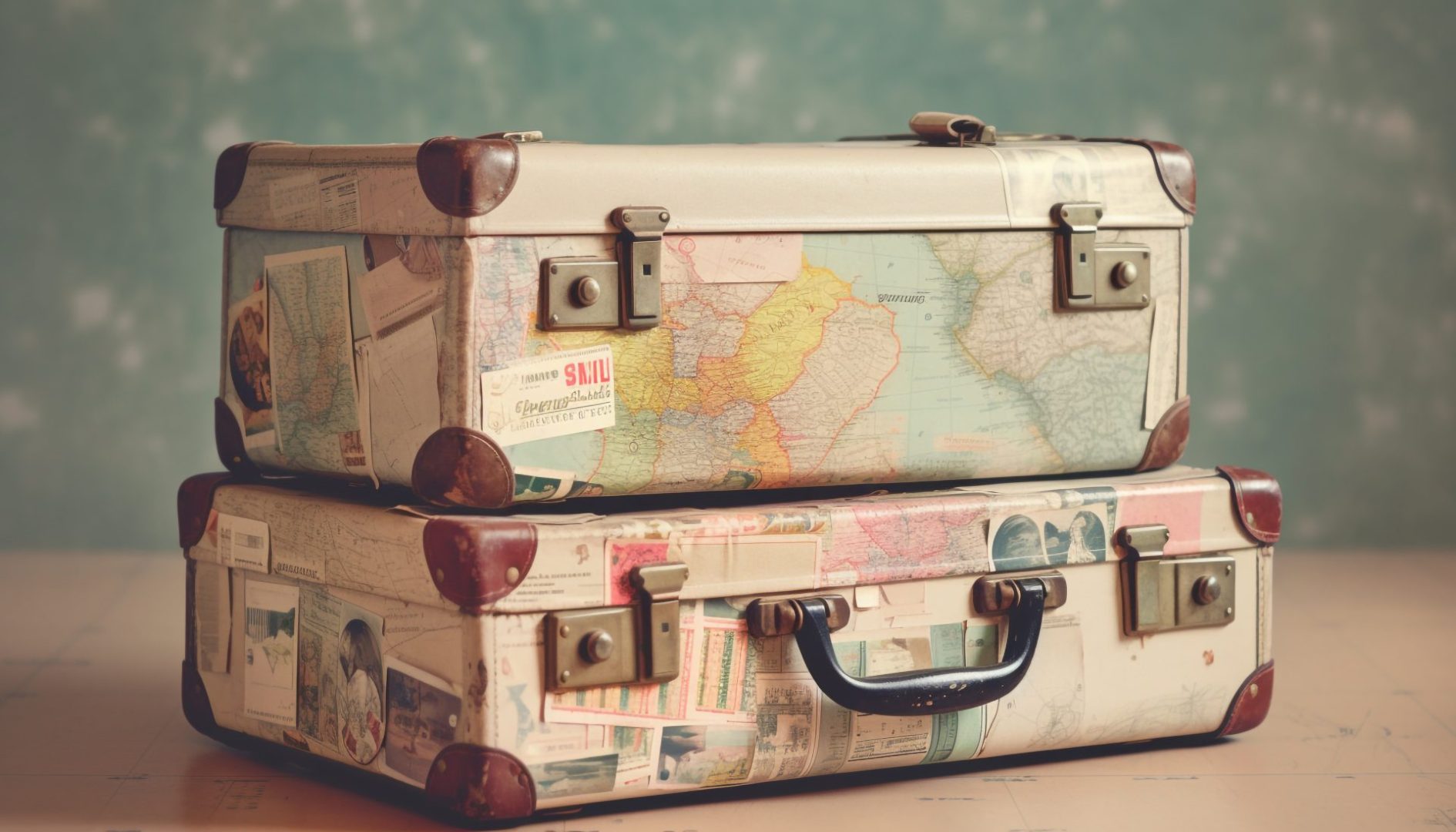

When it comes to traveling, ensuring your personal safety and security should be a top priority. Whether you’re exploring a bustling city or venturing into remote areas, being aware of potential risks and taking necessary precautions is essential. This article will guide you through various measures you can take to stay secure while traveling, including physical, financial, digital, cyber security and theft security aspects. Learn more about these simple travel security tips and enjoy a worry-free journey!
Safety Tips for Travelers
Physical Security Measures & Travel Safety Tips
How to ensure physical security while traveling? What is the best way to protect yourself?
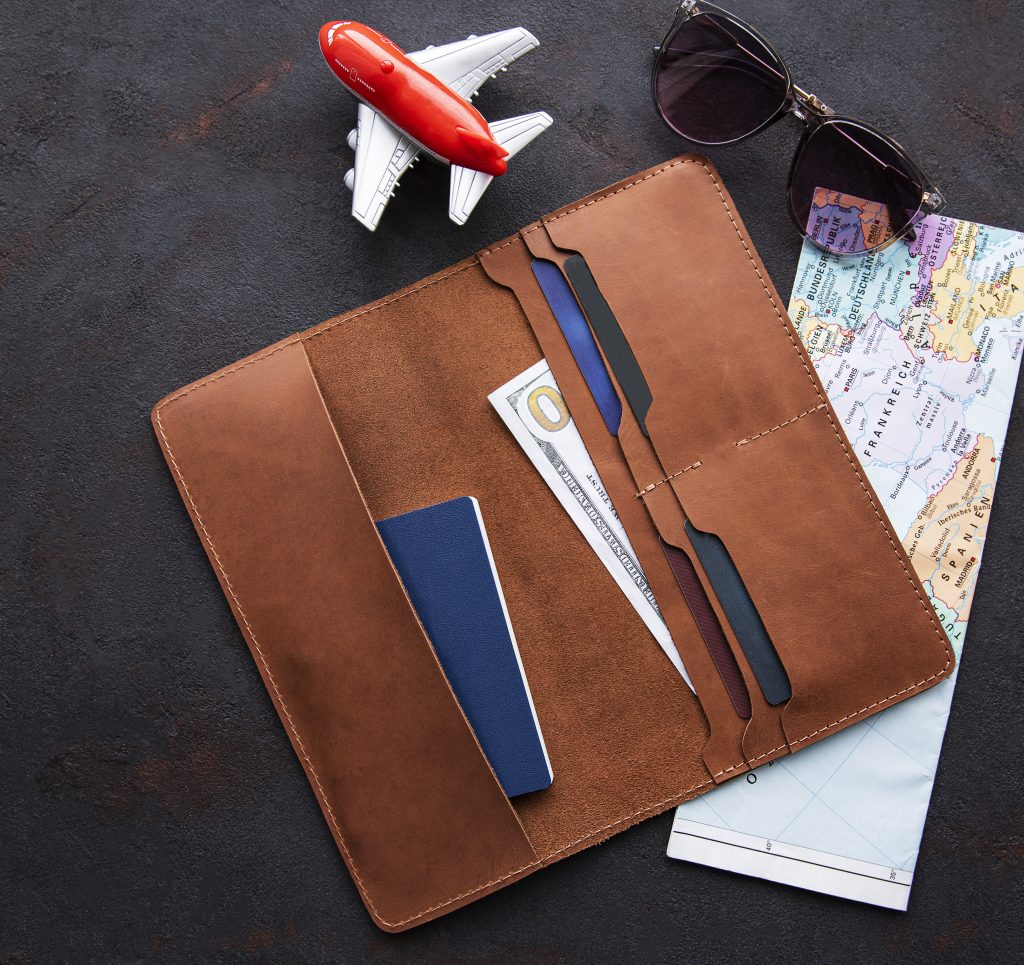


Choosing Safe Accommodations
Selecting a reputable and secure accommodation is a crucial travel safety tip. Opt for well-reviewed hotels, guesthouses, or vacation rentals that have proper security measures in place. Look for features such as 24-hour surveillance, secure entrances, and reliable locks on doors and windows.
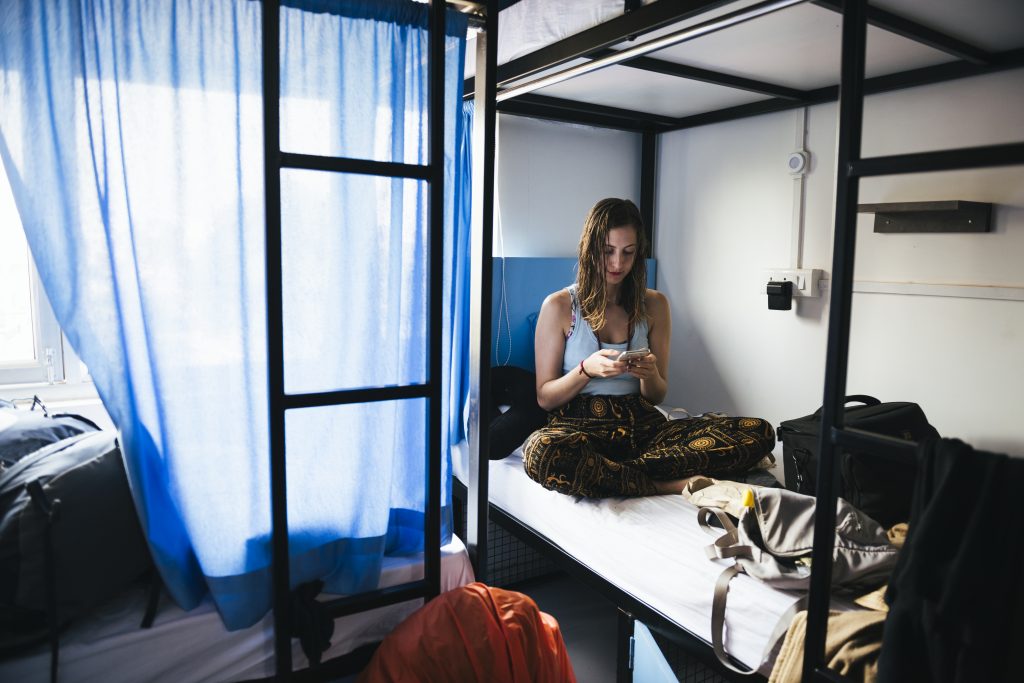


Keeping Valuables Secure
Avoid drawing unnecessary attention to your valuables. While walking or sightseeing, keep expensive items such as cameras, smartphones, and jewellery concealed in a bag or backpack. Secure your travel wallet in the hidden pockets inside. It’s best to avoid displaying your wealth openly. Read more about financial security below.
Avoiding Unsafe Areas
Be aware of your surroundings. Research and familiarize yourself with the destination you’re traveling to by paying attention to any high-crime areas or neighbourhoods known for scams and avoid them if possible. Stay informed about current safety advisories and follow local guidelines and recommendations. Also please check the smart traveler enrollment program for updates & benefits.
Use a Money Belt or Hidden Pouch
Consider using a money belt or a hidden pouch that can be worn discreetly under your clothing. These are ideal for storing essentials like cash, credit cards, and passports. Keep only a small amount of money easily accessible in a separate wallet or pocket for quick purchases.
Don’t Keep All Valuables in One Place
Distribute your valuables and important documents in different compartments or pockets. By doing so, you minimize the risk of losing everything if one item is stolen. Additionally, avoid placing all your valuables in checked luggage, as it can be vulnerable to theft or mishandling.
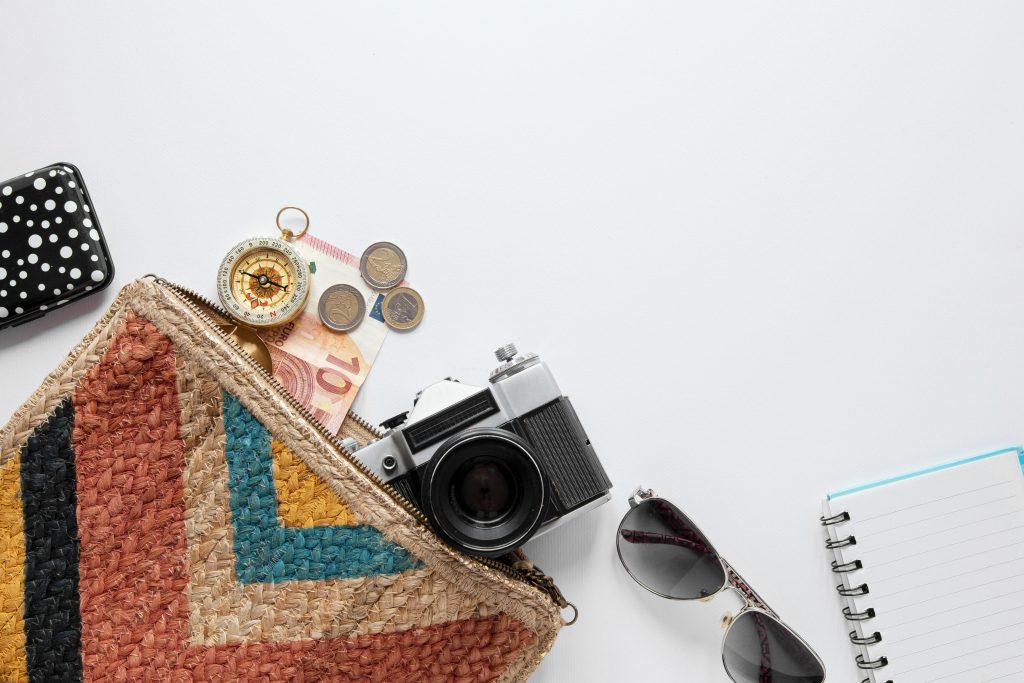


Utilize Hotel Safety Deposit Boxes
Most hotels offer safety deposit boxes in guest rooms or at the front desk. Take advantage of these secure storage options to store your valuables when you’re not using them. Ensure you keep an inventory of the items you store and request a receipt for added accountability.
Use Locks and Security Cables
For items such as laptops, cameras, and bags, use security cables and locks when leaving them unattended. This prevents opportunistic thieves from easily snatching your belongings and deters unauthorized access.
Be Cautious in Crowded Places
Pay extra attention to your personal belongings in crowded areas such as markets, tourist attractions, and public transportation. Stay aware of your surroundings, and be cautious of distractions or attempts to create confusion. Thieves often take advantage of crowded spaces to snatch unattended bags or pickpocket unsuspecting travelers.
Avoid Flashy Displays of Wealth
Minimize the display of expensive jewelry, watches, or designer accessories while traveling. Flashy displays can attract unwanted attention and make you a target for thieves. Opt for modest and inconspicuous accessories instead.
Photocopy Important Documents
Make photocopies or digital scans of important documents such as your passport, visas, and travel insurance. Keep these copies separate from the originals and store them securely. This can be helpful in case of loss or theft, as it facilitates the replacement process.
Stay Vigilant on Public Transportation
Be cautious when using public transportation, particularly in crowded buses, trains, or subways. Hold your bag in front of you and ensure it is securely closed. Be aware of your surroundings and report any suspicious activity to the appropriate authorities.
Digital Travel Security Measures
What measure can be taken to secure yourself digitally while discovering new places? What steps can be taken to ensure that you are protected digitally? Let’s see.
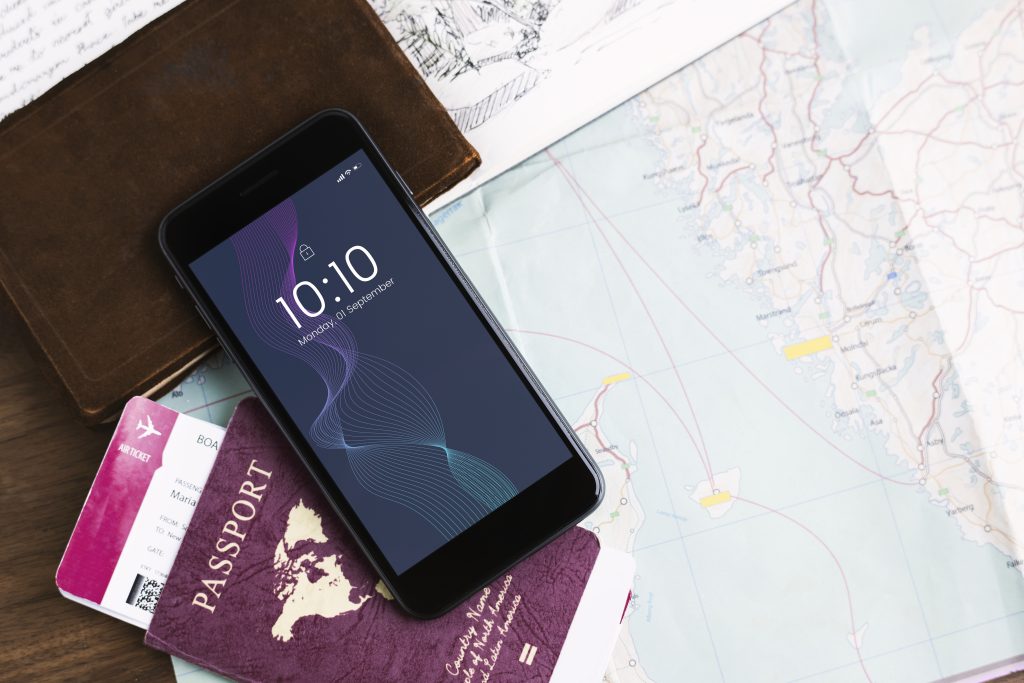


Securely Connecting to Public Wi-Fi
Secure Wi-fi while traveling is another important thing to pay attention to. Public Wi-Fi networks can be vulnerable to hackers and cybercriminals. To protect your digital data, avoid connecting to unsecured or unknown Wi-Fi networks. If you must use public Wi-Fi, consider using a virtual private network (VPN) to encrypt your internet connection and keep your information secure.
Using a Virtual Private Network (VPN)
A VPN for traveling creates a secure tunnel between your device and the internet, encrypting your data and protecting your online activities from prying eyes. Use a reputable VPN service to safeguard your sensitive information, especially when accessing personal accounts or conducting financial transactions. From our experience, we could recommend the following: CyberGhost VPN, as well as Nord VPN Services.
Strong and Unique Passwords
Ensure your online accounts have strong and unique passwords. Use a combination of uppercase and lowercase letters, numbers, and symbols. Avoid using easily guessable information like your name or birthdate. Consider using a password manager to securely store and generate complex passwords for your various accounts. Please consider any password manager for additional travel security.
Two-Factor Authentication (2FA)
Enable two-factor authentication whenever possible. This adds an extra layer of security by requiring an additional verification step, such as a unique code sent to your phone or email, along with your password. It significantly reduces the risk of unauthorized access to your accounts.
Cybersecurity While Traveling
Locking Personal Devices with Strong Passwords
Set strong passwords or passcodes on all your devices, including smartphones, tablets, and laptops. Use biometric authentication features like fingerprint or facial recognition if available. In case your device gets lost or stolen, these measures will prevent unauthorized access to your personal information.
Encrypting Sensitive Data
Encrypting your sensitive data adds an extra layer of protection & security while traveling. Use built-in encryption features or third-party encryption software to secure important files and documents on your devices. In the event of theft or unauthorized access, encrypted data remains unreadable without the encryption key.
Installing Security Software
Install reputable security software, including antivirus, anti-malware, and firewall programs, on your devices. Regularly update these programs to ensure you have the latest security patches and protection against emerging threats.
Regularly Updating Software and Apps
Keep your device’s operating system, software, and apps up to date. Developers often release updates that address security vulnerabilities and enhance overall performance. Set your devices to automatically install updates or regularly check for and install updates manually.
Financial Security Tips For Travelers
Using Secure Payment Methods
When making payments while traveling, prioritize secure methods such as credit cards or digital payment platforms. These offer fraud protection and easier recovery in case of unauthorized transactions. Avoid using unfamiliar or unsecured payment options that may compromise your financial information. Have some cash aside in hidden pockets in case your wallet will be stolen.
Emergency Cash Reserves
Keep a small emergency cash reserve separate from your regular funds. In case of unforeseen circumstances, such as a lost or stolen wallet or card issues, having backup cash can help you navigate any immediate financial needs until the situation is resolved.
Monitoring Bank and Credit Card Statements
Regularly monitor your bank and credit card statements for any suspicious transactions. Report any unauthorized charges immediately to your financial institution. Consider setting up transaction alerts or notifications to stay informed about account activity.
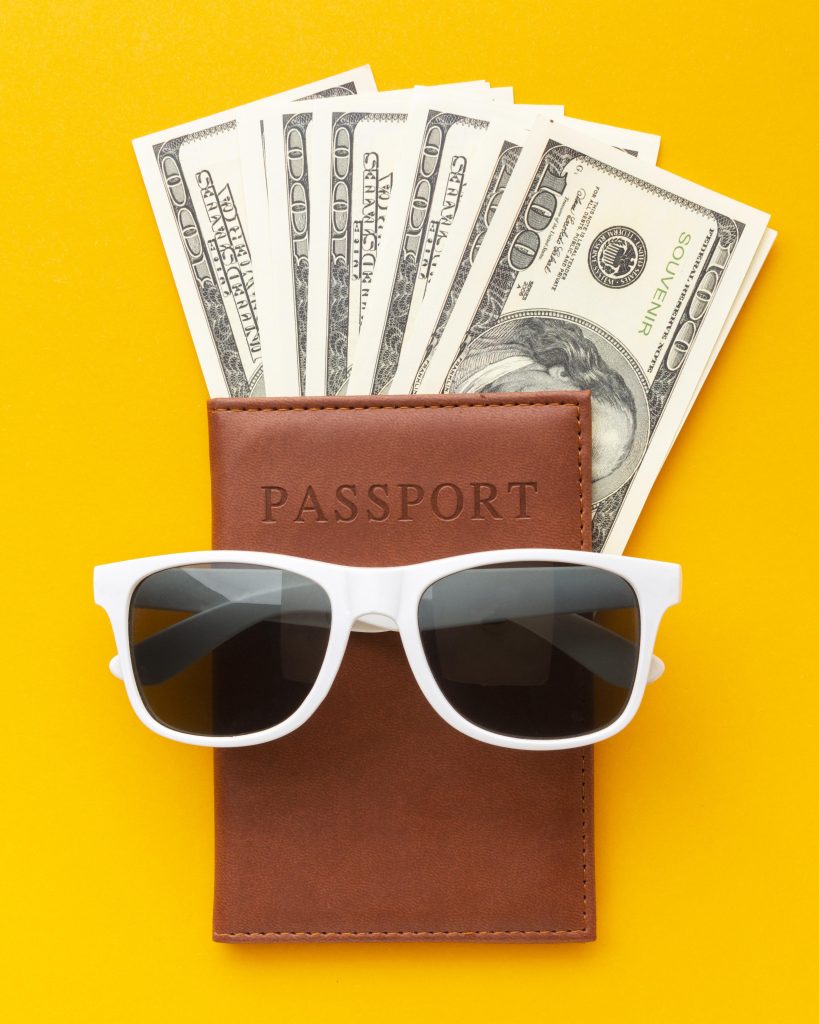


Keeping Copies of Important Documents
Make digital and physical copies of important travel documents such as passports, visas, and driver’s licenses. Store them securely, separate from the originals. In case of theft or loss, having copies can speed up replacing the documents and prove your identity.
Travel Insurance
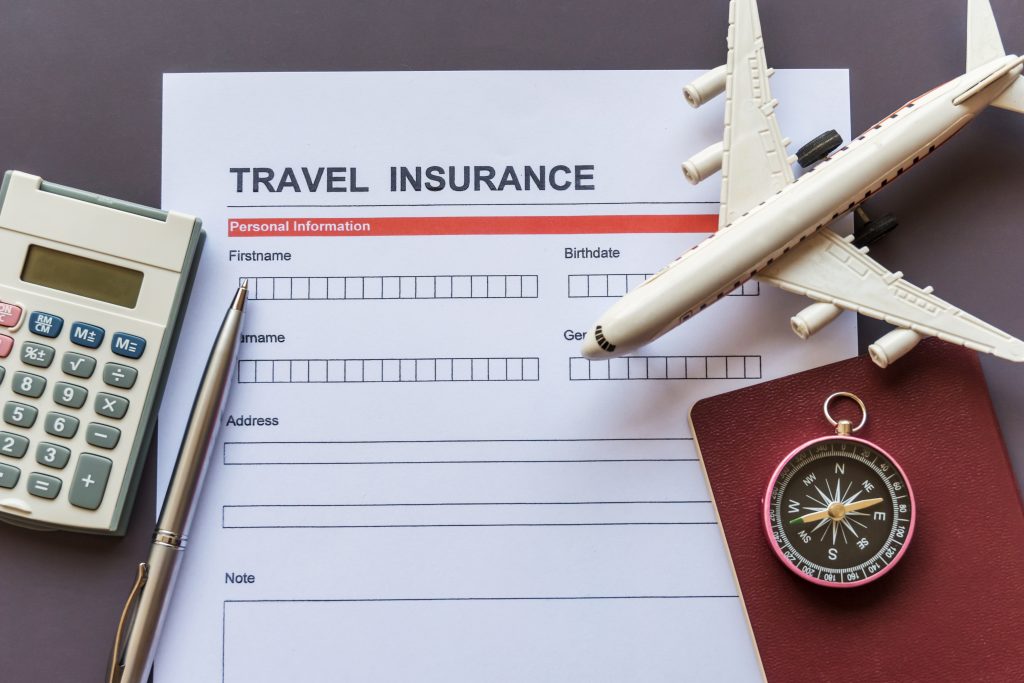


Benefits of Travel Insurance
Obtaining travel insurance provides an added layer of protection and peace of mind during your travels. It typically covers medical emergencies, trip cancellations or interruptions, lost or delayed baggage, and other unforeseen events, depending on the policy.
Choosing the Right Coverage
Evaluate your travel insurance options and select a policy that best suits your needs. Consider factors such as coverage limits, deductibles, medical coverage, trip cancellation coverage, and emergency evacuation. Read the policy terms and conditions carefully to understand what is covered and any exclusions or limitations.
Emergency Preparedness
Emergency Contact Information
Keep a list of emergency contact numbers, including local authorities, your embassy or consulate, and your travel insurance provider. Store these numbers in your phone and have a physical copy as a backup. In case of emergencies, you’ll have quick access to the necessary contacts.
Knowledge of Local Laws and Customs
Check the US Travel Advisory whether your destination country is safe. Before traveling to a new destination, familiarize yourself with the local laws, customs, and cultural practices. Respect and adhere to these norms to avoid any unnecessary conflicts or legal issues. Being aware of your surroundings and local regulations enhances your overall safety. Please consider also registering with the US State Department STEP Program for US citizens traveling overseas.
Cultural Sensitivity
Respecting Local Customs and Traditions
Immerse yourself in the local culture by respecting customs, traditions, and social norms. Dress appropriately, behave respectfully, and follow any cultural practices or etiquette. Being culturally sensitive fosters positive interactions and reduces the risk of misunderstandings or confrontations.
Dressing Appropriately
Research and understand the appropriate dress code for the destination you’re visiting, especially in conservative or religious regions. Dress modestly and respectfully to show cultural sensitivity and avoid drawing unnecessary attention.
Being Aware of Cultural Norms
Educate yourself about the cultural norms and practices of the place you’re visiting. For example, understanding local greetings, gestures, and etiquette can help you navigate social interactions more smoothly and respectfully.
Summary
Prioritizing your security while traveling is essential for a smooth and enjoyable experience. Become a secured traveler by implementing physical security measures, ensuring digital security, securing personal devices, being financially vigilant, preparing for emergencies, and respecting local customs, you can significantly reduce the risks and enjoy a worry-free journey. In addition, discover some useful tips how to travel on budget in the US.
Frequently Asked Questions (FAQs) about Traveling Security
How can I protect my passport while traveling? Keep your passport in a secure and concealed location, such as a money belt or hotel safe. Make digital copies of your passport and store them separately.
How to secure backpack when traveling? You can secure your bag to a stationary item with the help of a double-sided cable lock. Wrap a cable around your backpack if you sleep in an open place or leave your backpack unattended. More backpack security tips here.
Is it safe to use ATMs abroad? Use ATMs located in secure and well-lit areas. Cover the keypad when entering your PIN and be cautious of any suspicious devices or individuals nearby.
How can I secure my electronic devices while traveling? Use password protection, enable remote tracking or wiping features, and consider using a security cable or lock to secure your devices when not in use as in the backpack security example above.
Is travel insurance helpful in case of stolen or lost belongings? Depending on the policy, travel insurance may provide coverage for stolen or lost belongings. Review the terms and conditions of your policy to understand the coverage and claims process.
What should I do if my wallet or bag is stolen? Immediately report the incident to the local authorities and your embassy or consulate. Cancel any stolen cards, change passwords, and contact your travel insurance provider for assistance.
Can I trust hotel room safes? Hotel room safes can be a secure option for storing valuables. However, it’s important to exercise caution and ensure that you follow the safe usage instructions provided by the hotel.
Newsletter Subscription
You May Also Like
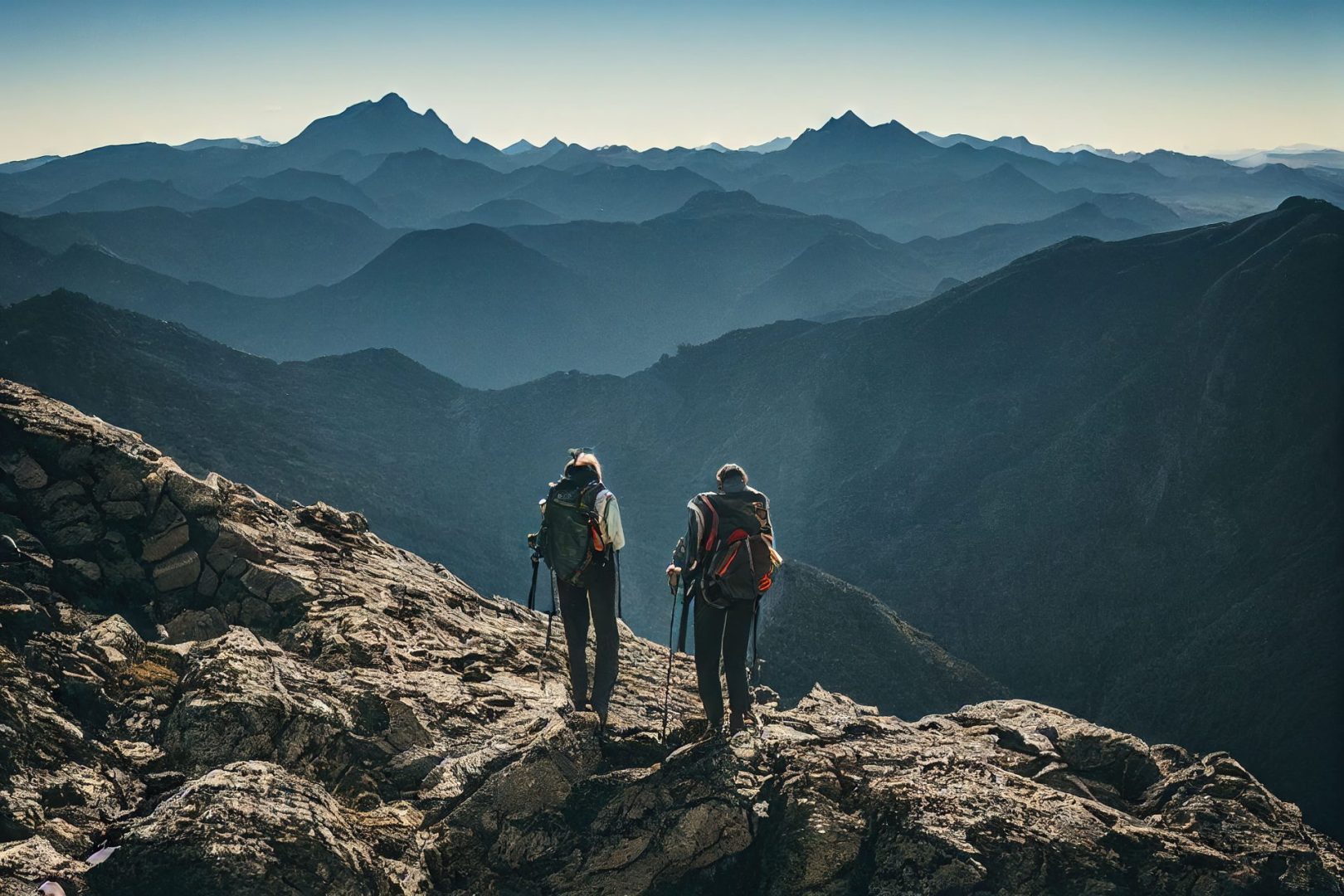

Adventure Travel Trends for 2024: Unveiling the Next Frontier
Embarking on an exhilarating journey beyond the mundane has always been at the heart of human...

Unlock Your Photoshooting Potential: Tips for Landscape Photographers
Embarking on a journey to capture the beauty of landscapes is both an art and a science. This...


